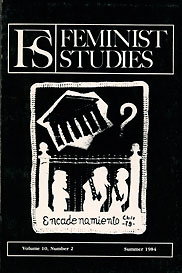 Christie looked back over the long, lonely years she had spent in the old farm-house, plodding to school and church, and doing her tasks with kind Aunt Betsey while a child; and slowly growing into girlhood, with a world of romance locked up in a heart hungry for love and a larger, nobler life.
Christie looked back over the long, lonely years she had spent in the old farm-house, plodding to school and church, and doing her tasks with kind Aunt Betsey while a child; and slowly growing into girlhood, with a world of romance locked up in a heart hungry for love and a larger, nobler life.
She had tried to appease this hunger in many ways, but found little help. Her father`s old books were all she could command, and these she wore out with much reading. Inheriting his refined tastes, she found nothing to attract her in the society of the commonplace and often coarse people about her. She tried to like the buxom girls whose one ambition was to "get married," and whose only subjects of conversation were "smart bonnets" and "nice dresses." She tried to believe that the admiration and regard of the bluff young farmers was worth striving for; but when one well-to-do neighbor laid his acres at her feet, she found it impossible to accept for her life`s companion a man whose soul was wrapped up in prize cattle and big turnips.
Uncle Enos never could forgive her for this piece of folly, and Christie plainly saw that one of three things would surely happen, if she lived on there with no vent for her full heart and busy mind. She would either marry Joe Butterfield in sheer desperation, and become a farmer`s household drudge; settle down into a sour spinster, content to make butter, gossip, and lay up money all her days; or do what poor Matty Stone had done, try to crush and curb her needs and aspirations till the struggle grew too hard, and then in a fit of despair end her life, and leave a tragic story to haunt their quiet river.
To escape these fates but one way appeared; to break loose from this narrow life, go out into the world and see what she could do for herself. This idea was full of enchantment to the eager girl, and, after much earnest thought, she had resolved to try it.
Work: A Story of Experience (1873) Alcott's semi-autobiographical novel follows the life experiences of Christie Devon, which begin before and conclude after the American Civil War. An enthusiastic, well-rounded, and independently-minded young woman, she sets out from her uncle's house determined to find meaningful work and a sense of self-fulfillment. The series of jobs she performs, from alternately being a maid, an actress, and a governess, to being a companion and later a seamstress, gently convey moral lessons, social duties, and a strong sense of feminine determination. Perhaps even more important are the people she meets along the way, including the runaway slave Hepsey, the 'fallen' Rachel, the domestic Cynthy, and the floriculturist David, all of whom ultimately convey to a modern woman the quiet essentiality of interdependence in the pursuit of happiness in life.
 From Success to Experience: Louisa May Alcott's Work
by
From Success to Experience: Louisa May Alcott's Work
by
 The Limits of Sympathy: Louisa May Alcott and the Sentimental Novel
by
The Limits of Sympathy: Louisa May Alcott and the Sentimental Novel
by
 The Domestic Drama of Louisa May Alcott
by
The Domestic Drama of Louisa May Alcott
by